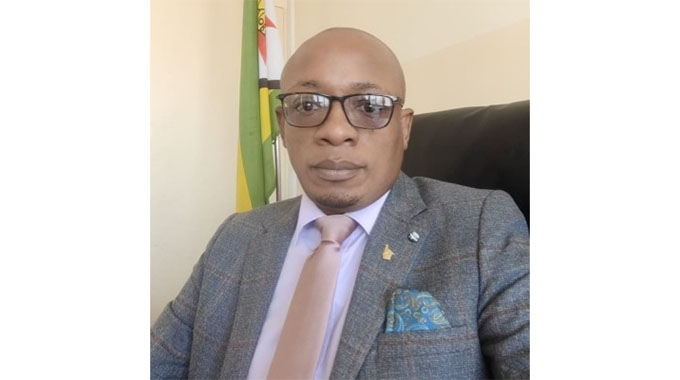‘We prefer freedom in chaos to tranquillity in servitude’

Gibson Nyikadzino The Interview
On April 18, Zimbabweans will be celebrating 44 years of independence from a colonial system that had exploited the black majority for nearly a century. The road to independence was a long and arduous one, whose demands were nothing other than a sacrifice between life and death. The Herald correspondent Gibson Nyikadzino (GN) sat down with veteran freedom fighter Retired Colonel Tshinga Dube (TD) to share insights on experiences learnt to attain independence; the post-independence challenges in Zimbabwe and efforts made towards peace; and the importance of political maturity, among others.
GN: Where does the journey of Zimbabwe’s liberation start from? Which stage was critical?
TD: This was a long journey, a protracted one towards liberation. However, the wheels for Zimbabwe’s liberation were not motioned in the 1950s or 1960s, it started from the time colonialists arrived in Zimbabwe in 1890. From there the idea of independence was already alive.
GN: That was a long time ago. How do you support that assertion?
TD: The 1893 Pupu battle where President Mnangagwa this week commissioned a National Monument signifies that the liberation of Zimbabwe was a long journey. The 1896-97 uprisings and First Chimurenga. Along the way, our people were later defeated. The situation did not favour us. Our people gave up all they had but they couldn’t win looking at the inferior weaponry they had.
GN: From that time to the 1950s and 1960s what had changed?
TD: From 1896 to modern liberation we were now more in touch with the modern world and we were learning from those who had fought before us like China, Cuba, and Algeria. It was not easy to win against colonialism without fighting and sacrifice. In the early 1960s, many countries appreciated that Zimbabweans needed assistance. They said if we organised ourselves they would supply us with military training and weapons. These countries included Algeria, Egypt, Ghana, Guinea-Bissau and Tanzania. They began opening the door for assistance to enable us to train our cadres in preparation for the armed struggle. Because of sacrifice, we resolved that blood had to be shed because per-suasions, conferences, and all forms of dialogue could not convince the colonial establishment to grant black majority rule.
GN: At what time had people become seriously committed to the war initiative? How did you first select your leaders?
TD: It was in the 1960s that our people started receiving military training in guerilla warfare, weapons handling, how to conduct acts of sabotage, and battle formation. Our political leaders who were called nationalists like the late Father Zimbabwe (Dr. Joshua Nkomo), Cde Leopold Takawira, Chairman Herbert Chitepo, and others were easily accepted to lead because they were academically respected. This was the same with people like Cde Benjamin Burombo who had equal motivation. But we later discovered that it was a false characterisation (though important) that those academically gifted would bring victory alone, independence was about determination and the willingness to overthrow colonialism even by those who had no great academic credentials.

GN: How easy or challenging was it to galvanise efforts by these two groups?
TD: Efforts from the educated and those who were not deemed educated changed the complexion of the desire to fight as the commitment of these people was combined with great focus. People were trained in their hundreds and thousands to escalate the struggle. To escalate the war, there were three stages; preparation, the initial stage, and the execution part. The 1960s were years of preparation, the early 1970s was when more people volunteered and from the mid-1970s the execution of the war became unsustainable for the colonial regime. This was through the effort of these two groups.
GN: How did the colonial regime react to counter such an organisation?
TD: The colonial regime could not handle the advances of the liberation fighters. Remember whites were (also) using Africans to fight other Africans. However, some Africans became matured after experiencing those scenarios and more people started joining the liberation forces more than the oppressor forces. When the white establishment found out that they could not go anywhere, they convinced Frontline States (Mozambique, Tanzania, and Zambia) that if nationalist leaders did not attend the peace conferences or talks that were proposed to end the war then we would be barred from accessing our military bases in Zambia or Mozambique. We ended up attending the war conferences because we needed the bases. Colonialism was ultimately defeated.
GN: Independence came with its successes and challenges. How do you recall and interpret the first few years of independence?
TD: When we got our independence, certainly some enemies wanted to see us divided. Internal elements (that is the remnants of Rhodesia) and external elements like the apartheid South African intelligence.
These raised a lot of suspicions among our people and a lot of unpleasant things happened. But we later discovered we were victims of colonial intelligence and decided to come together in 1987 and since then there has been peace. People have learnt that we cannot be fooled by colonialists and today we wish the first of those (post-independence political challenges) had not taken place.
GN: Any other changes that you see and can relate to?
TD: The First Republic was beset and endowed with many challenges and problems, but things got better after the 1987 Unity Accord. With time people grow and they become mature. Some elements wanted to create difficulties for the country. But for now, I will tell you that the New Dispensation is the best thing that ever happened. There was nothing to compare the First Republic with. But under the Second Republic, we have ironed out some differences. The country is now more open for citizens to speak on issues they could not speak about in their previous lives.
GN: For clarity’s sake, how do you mean?
TD: Before the New Dispensation history could not be corrected because people had wrong and distorted ideas. That is why we are leaving no one and no place behind.
The Gukurahundi issue, for example, is now being discussed to bring with it closure. People were afraid to speak about this topic but today it is being discussed freely. Now we are further concentrating on development.
GN: Some youth claim that you (our liberation fighters), should return to the country where it was and they will fight for freedom themselves. What do you feel when you hear these sentiments? How do you challenge this line of thought?
TD: Some young people today are swayed by frivolous things like money. Money is not everything though it is important, especially as we move towards development.
There is a saying that “the youth think their elders are foolish, but the elders know the youth to be so”. Those remarks by some youth show immaturity. They do not know what living under colonialism was or is like. It is slavery. Under colonialism, the African was a slave who could not have any-thing.
Because of that immaturity look at Ukraine’s President Volodymyr Zelensky!
He has made his country suffer because he was influenced by money, such immaturity. Dr Kwame Nkrumah said, “Freedom under chaos is better than tranquillity in servitude”. Now some of the youth do not know what they are doing. They are failing to appreciate the reality of life.
GN: So what must be done collectively and effectively?
TD: We cannot be fighting people who have not been taught. The youth need to be educated and taught the reality, importance, and significance of the preservation of our hard-fought independence. We are thankful to President Mnangagwa for being a great visionary.
He has worked very hard to bring people together and today people have a sense of belonging. There is a need to preserve this history and our struggles so that the youth can learn and interpret our independence from a point of truth.
GN: Thank you for your time, Col Dube.TD: You are welcome and it was great having you.









Comments